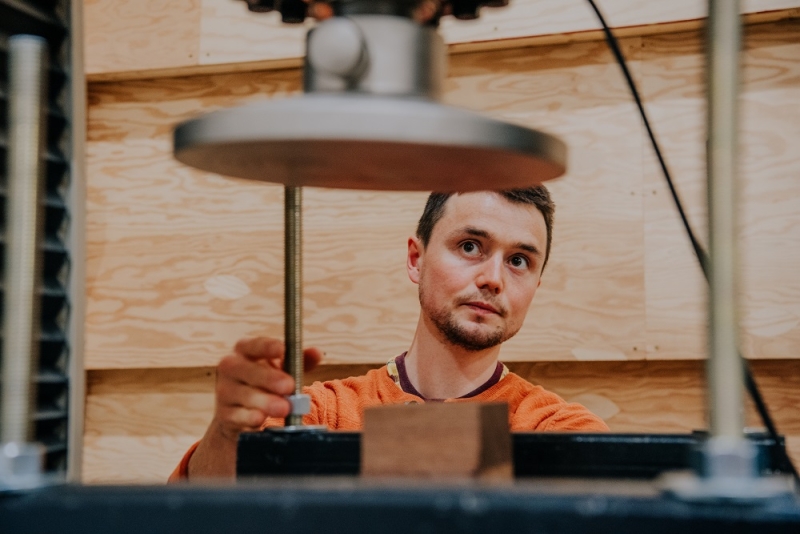UNBC celebrating Engineering month

Prince George, B.C. – The University of Northern British Columbia’s new School of Engineering is celebrating Engineering Month with events recognizing the importance of local industry partners, engaging with prospective students and sharing the history of civil engineering in Canada.
“Engineering is a vital profession for communities in northern B.C. and across British Columbia that brings enormous economic benefits to industry towns like Prince George,” said Anne Kang, Minister of Advanced Education and Skills Training. “Engineering Month is an opportunity to improve the understanding of what engineers do, the crucial role they play in our lives, and showcase the benefits a career in engineering offers.”
UNBC is inviting prospective students to visit UNBC on March 30. They will meet current UNBC engineering students, participate in hands-on exercises in labs and classrooms, interact with faculty and learn all about UNBC’s undergraduate engineering programs.
In addition, UNBC is hosting a reception for representatives from local engineering companies and other industry groups on March 29. Engineering firms across the region host co-op placements where UNBC students get on-the-job training. They also hire UNBC graduates as they expand their businesses, collaborate with UNBC researchers on projects, and some engineers from the private sector even bring their expertise into the classroom as course instructors.
“We created our School of Engineering to respond to the need to provide educational opportunities for the next generation of engineers right here in northern British Columbia,” says UNBC interim President Dr. Geoff Payne. “Engineering graduates are in high demand in British Columbia. By working closely with our partners in industry, we are providing unique learning opportunities for our students.”
As part of the Engineering Month celebrations, the Northern British Columbia Section of the Canadian Society for Civil Engineering (CSCE) is hosting a poster display explaining the important role of civil engineering in Canada, past and present at UNBC. Prepared by the CSCE History Committee, the posters explore key moments In Canadian civil engineering, from the construction of the Rideau Waterway in the 1820s and 1830s to the Lion’s Gate Bridge in the 1930s to the earthquake-resistant Qube in Vancouver built in the 1970s and renovated in 2005.
The posters will be on display in the atrium of the Teaching and Learning Centre from 6 p.m. to 7 p.m. on March 29.
UNBC’s School of Engineering offers five distinct degree programs, three at the undergraduate level and two at the master’s level.
The undergraduate programs feature small class sizes, design courses offered in every year of the program and courses focused on helping future engineers develop the business, teamwork and problem-solving skills they need to succeed in their careers. Students also have the opportunity to participate in co-op placements and gain research experience.
“Our School of Engineering fosters an inclusive community where a diverse group of students and instructors engage in a stimulating academic experience. Students forge lasting friendships as they obtain the academic qualifications to become licensed Professional Engineers,” says UNBC Dean Faculty of Science and Engineering Dr. Deborah Roberts. “Experiential learning opportunities are central to our undergraduate programs, with hands-on laboratories, real-world design projects and opportunities for students to conduct research alongside our world-class faculty.”
Undergraduate students can complete a Bachelor of Applied Science in either Environmental Engineering or Civil Engineering at UNBC’s Prince George campus. There is also a joint Environmental Engineering program with the University of British Columbia where students spend two years at UNBC, two years at UBC and one final semester at UNBC.
UNBC offers a Master of Engineering degree in Integrated Wood Design, based out of the Wood Innovation and Design Centre and the Wood Innovation Research Lab in downtown Prince George. The newest program, a Master of Applied Science in Engineering, is a research-based degree.
